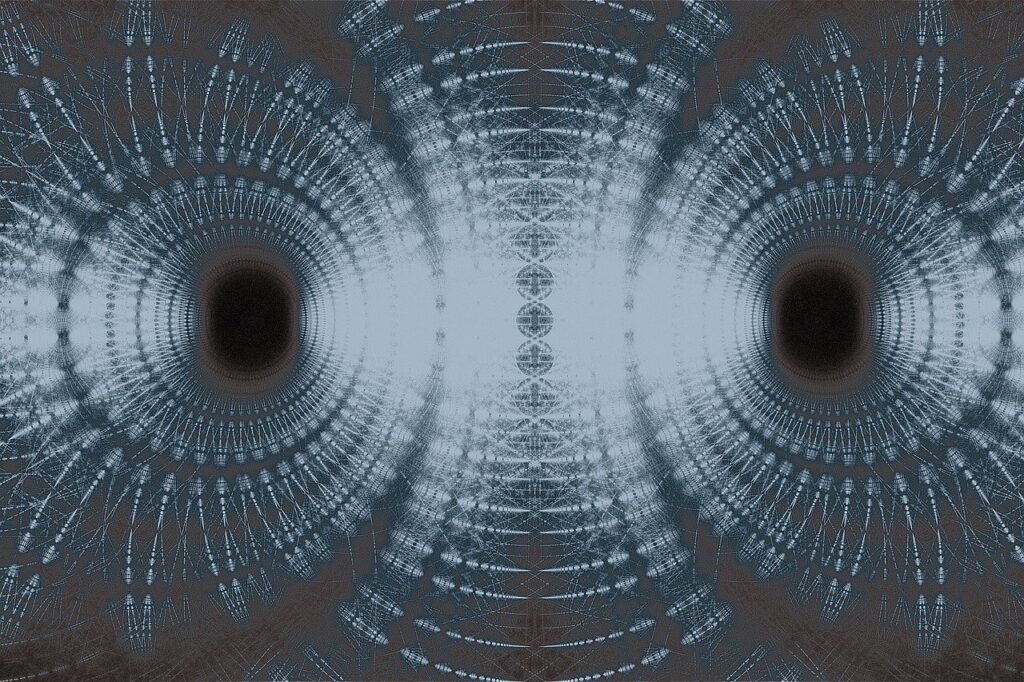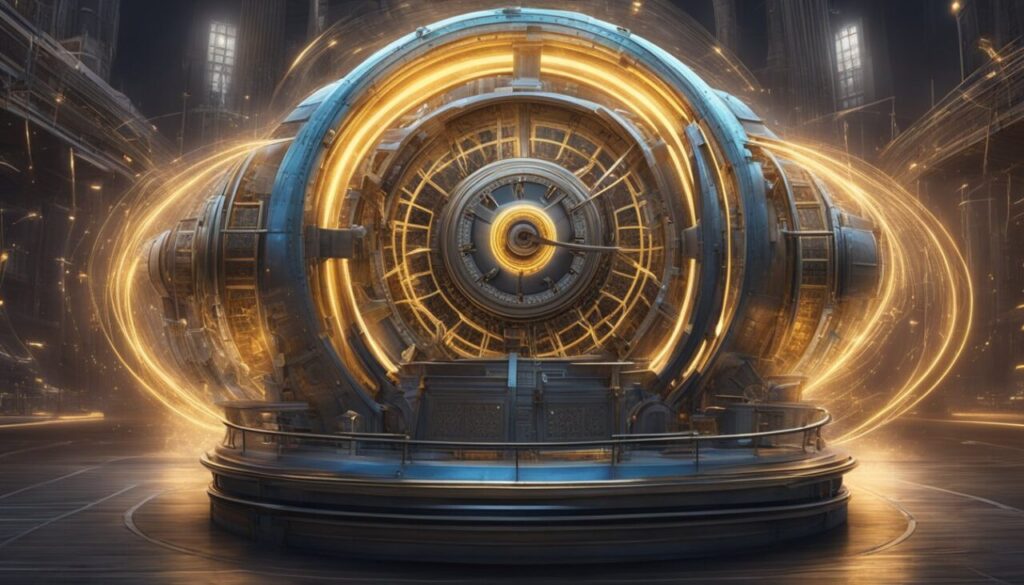
We have always been captivated by time travel. But what exactly does time travel entail, and is it ever really conceivable? If you had the chance, where would you prefer to go to the past, the future, or perhaps a little of both?
You probably aren’t aware of it, but by the time you finish reading this post, you will have gone forward about 10 mins. You are moving closer to your future every single moment of every day. Similar to how you would travel across space, you are actually moving across time.
The fact that we are all naturally traveling through time makes it easier, logically speaking, to move forward towards time than it is to move backward in time.
In this piece, you’ll read about the fundamentals of time travel science according to the great scientist Albert Einstein’s Theory of Relativity, and more.
So, let’s dive right into this piece without any further ado.
The Basics Of Time Traveling At A Glance

Let’s begin with this rather bold assertion: it is possible to travel across time. But there are some restrictions.
According to Albert Einstein’s General Theory of Relativity, time is relative and subject to change depending on the right circumstances. The only restriction is that you can only go forward in time; you can never go back.
Albert Einstein’s theory of Special Relativity, which, broadly speaking, explains the connection between space and time, is the foundation for the idea of time travel. A result of this is something called “time dilation,” which contends that time can advance at various speeds depending on the witness and, consequently, at different rates depending on the location.
However, scientists haven’t made much progress even after debating the time travel conundrum for over a century. Though round-trip time travel is possible in theory according to Einstein’s calculations, other physics factors probably render it impossible to produce the exotic types of energy required for it.
Due to highly intricate physics, traveling across time is not feasible. However, the most straightforward response is that the math is incorrect.
According to astronomer Charles Liu, there is only forward and backward motion within the three primary dimensions of width, breadth, and height.
However, you can only travel ahead in time, or perhaps more precisely, space-time, which is thought to be four-dimensional.
Scientifically speaking, time travel is not feasible because anything that deviates from the math to enable it runs against the acknowledged rules of physics.
The Quantum Jumps In The Time Process

According to Quantum Physics, moving across our three-dimensional reality without passing through time is possible.
Without ever being caught between, scientists can now make particles migrate from one geographical place to the next. It is termed a quantum leap for this reason.
If we could accomplish this in the fourth dimension, we would be able to travel directly from the current to the future. Indeed, that is what we would call time travel. This topic has fascinated people throughout history since it is so interesting.
Building A Time Machine? How?

“How can a time machine be created?” The most straightforward method now under discussion is to take a wormhole (a tube linking geographically distinct areas of space-time) and accelerate one end of the wormhole far faster than the other.
Then, access to history would be possible via the wormhole.
And from where can one get a wormhole? Even with years of intensive research into the theoretical background of wormholes, very little is understood about how to create a macroscopic wormhole that is big enough to allow a person or a spacecraft to transit through.
Does nature permit us to create a time machine even though we possessed a wormhole? According to Stephen Hawking’s “Chronology Protection Conjecture,” we cannot build time travel because of nature’s laws.
However, this has not yet been verified and is only a supposition.
Theoretical physicists have investigated numerous physics-related topics to discover whether one or more physical laws might defend chronology and prohibit the creation of a time machine.
Yet, despite extensive research, only one aspect of physics that would preclude exploiting a wormhole to cross time has been discovered.
Why Do Time Machines Still Not Exist?

Our understanding is compatible with two different responses. The first point is that the moral theory of quantum gravity has fewer feasible solutions than the classical theory.
It is not improbable that classical spacetimes with time cycles are illusory or that they do not resemble any phases of the whole thesis. That causal coherence penetrates quantum gravity in a fundamental sense.
The latest results, known as chronology protection, offer a second potential response: one postulates that causality-violating microscopic objects are permissible in the context of quantum gravity, and another demonstrates the nature of macroscopic matter precludes the formation of macroscopically huge time loops.
Negative energy would be necessary to build a time machine, but quantum mechanics only permits very different areas of negative energy. Additionally, extreme pressures are required to produce a region of standard dimension with time loops.
Why Does The Consistency Paradox Become A Challenge?

The fact that time travel appears to defy logic in the way of travel paradoxes is the other major problem, which is less pragmatic but essential. There are various kinds of these paradoxes, but consistency paradoxes are among the most challenging.
Consistency paradoxes occur when a particular occurrence changes history, but the modification precludes the event from occurring in the first place.
Imagine, for instance, that I board my time machine, employ it to travel back in time by 15 mins, and then destroy it as soon as I reach the past. It will be inconceivable for me to utilize the time capsule 15 minutes from now because I wrecked it.
But I won’t be able to travel back in time and forget it if I can’t utilize the time machine. As a result, it is not damaged, allowing me to go back in time and do so. In all other senses, the time machine only ceases to exist if and when it does.
This situation is contradictory and paradoxical because it cannot concurrently be damaged and not damaged.
What Will Happen If You Do Time Travel?

Even the most technologically advanced human spacecraft can’t travel at even a tiny fraction of the speed of light. The slower your timer will run, the more time you could pass snuggling near the universe’s maximum speed.
You will take a time-traveling journey into the future.
Picture a wormhole with one of its openings circling the universe at 95% of the speed of light. Since viewers in relative movement perceive time variously, according to special relativity, timepieces on a space rocket traveling quickly would appear to be ticking more gradually than those on the land.
Therefore, a witness traveling across space at the wormhole’s entrance could conclude, based on their watch, that the round-trip journey took one week.
But if someone glanced at their clock at the opposite end of the wormhole, who was at rest in backdrop space, they would see that the journey had taken three years.
Nothing would ever feel strange for you, but depending on how rapidly you go, when you come back to Earth after a few years, our clocks will have moved by thousands or possibly tens of thousands of years. Therefore, you control your destiny and how soon you achieve it.
Closing Thoughts

All of the available data points to the likelihood that we will never be able to produce such a substance. But ultimately, we cannot demonstrate the feasibility of creating a time machine because of the limitations in our knowledge of general relativity, particularly in the area where quantum mechanical influences may be substantial.
The likelihood that the laws of physics prohibit macroscopic time machines is very high, but it is also conceivable that spacetime contains microscopic time loops. In other terms, it is still possible for time travel to exist in our universe.
So as mentioned, while time travel may seem improbable given our understanding of time, several theoretical frameworks have been proposed that offer glimpses of potential pathways. One such concept is the idea of traversable wormholes, hypothetical tunnels that connect different regions of spacetime. By manipulating these wormholes, it could be theoretically possible to navigate through time, albeit with numerous technical challenges and unknown consequences.
While scientific theories and concepts offer glimpses into potential avenues for exploring time manipulation, significant challenges and paradoxes must be overcome. It is crucial to continue pushing the boundaries of our knowledge and scientific understanding to shed light on this age-old question. Time travel may ultimately lie beyond our reach, forever confined to the realm of fiction. Nevertheless, the journey of scientific inquiry will undoubtedly yield new insights and discoveries that will continue to shape our understanding of the universe we inhabit.



























